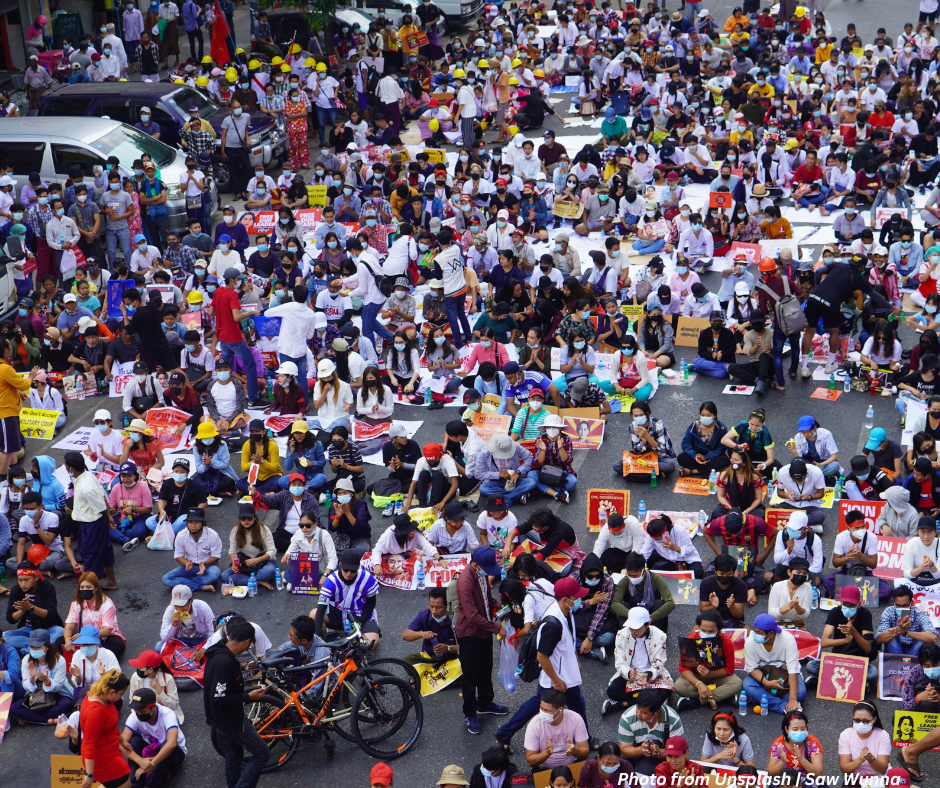
Photo from Unsplash | Saw Wunna
The following post does not create a lawyer-client relationship between Alburo Alburo and Associates Law Offices (or any of its lawyers) and the reader. It is still best for you to engage the services of a lawyer or you may directly contact and consult Alburo Alburo and Associates Law Offices to address your specific legal concerns, if there is any.
Also, the matters contained in the following were written in accordance with the law, rules, and jurisprudence prevailing at the time of writing and posting, and do not include any future developments on the subject matter under discussion.
AT A GLANCE:
A strike or lockout may be declared illegal if any of the requirements for a valid strike or lockout is not complied with or if declared based on non-strikeable, or when the issues involved are already the subject of arbitration. During a strike or lockout, either of the parties are additionally prohibited from committing illegal acts. (Guidelines Governing Labor Relations)
What is a strike?
A strike refers to any temporary stoppage of work by the concerted action of employees as a result of an industrial or labor dispute. Aside from temporary work stoppages, strikes likewise include slowdowns, overtime boycott, sit-downs, attempts to damage, destroy or sabotage plant equipment and facilities and similar activities, or mass leaves.
The law says:
“Strike means any temporary stoppage of work by the concerted action of employees as a result of an industrial or labor dispute.” (Section 4 (o), Republic Act No. 6715)
The Supreme Court, in the case of Gold City Integrated Port Services, Inc. v. NLRC (G.R. No. 103560, July 6, 1995), describes strikes in the following manner:
“Strike has been considered the most effective weapon of labor in protecting the rights of employees to improve the terms and conditions of their employment.”
Likewise, as held in the case of PHIMCO Industries, Inc. v. PHIMCO Industries Labor Association (PILA), et.al. (G.R. No. 170830, August 11, 2010):
“A strike is the most powerful weapon of workers in their struggle with management in the course of setting their terms and conditions of employment.”
When does a strike become illegal?
A legal strike is one called for a valid purpose and conducted through means allowed by law, while an illegal strike is one staged for a purpose not recognized by law, or if for a valid purpose, conducted through means not sanctioned by law,
Under the Guidelines Governing Labor Relations, a strike or lockout may be declared illegal if any of the requirements for a valid strike or lockout is not complied with or if declared based on non-strikeable, or when the issues involved are already the subject of arbitration. During a strike or lockout, either of the parties are additionally prohibited from committing illegal acts.
The exercise of the rights to strike or lockout shall be subject to the following requirements:
(a) a strike or lockout notice shall be filed with the labor department at least 15 days if the issues raised are unfair labor practice or at least 30 days if the issue involved bargaining deadlock.
(b) the strike or lockout shall be supported by a majority vote of the members of the union or of the members of the board of directors of corporations or associations or partnership, obtained by secret ballot in a meeting called for the purpose; and
(c) strike lockout vote shall be reported to the labor department at least 7 days before the intended strike or lockout.
The requirements for valid strike or lockout are mandatory in character and non-compliance therewith is sufficient ground to declare the strike or lockout illegal, upon the filing of a proper petition and after due hearing with the appropriate Arbitration Branch of the National Labor Relations Commission.
Read also: WHAT ARE THE PROHIBITED ACTIVITIES IN A STRIKE?
Alburo Alburo and Associates Law Offices specializes in business law and labor law consulting. For inquiries regarding taxation and taxpayer’s remedies, you may reach us at info@alburolaw.com, or dial us at (02)7745-4391/0917-5772207.
All rights reserved.


